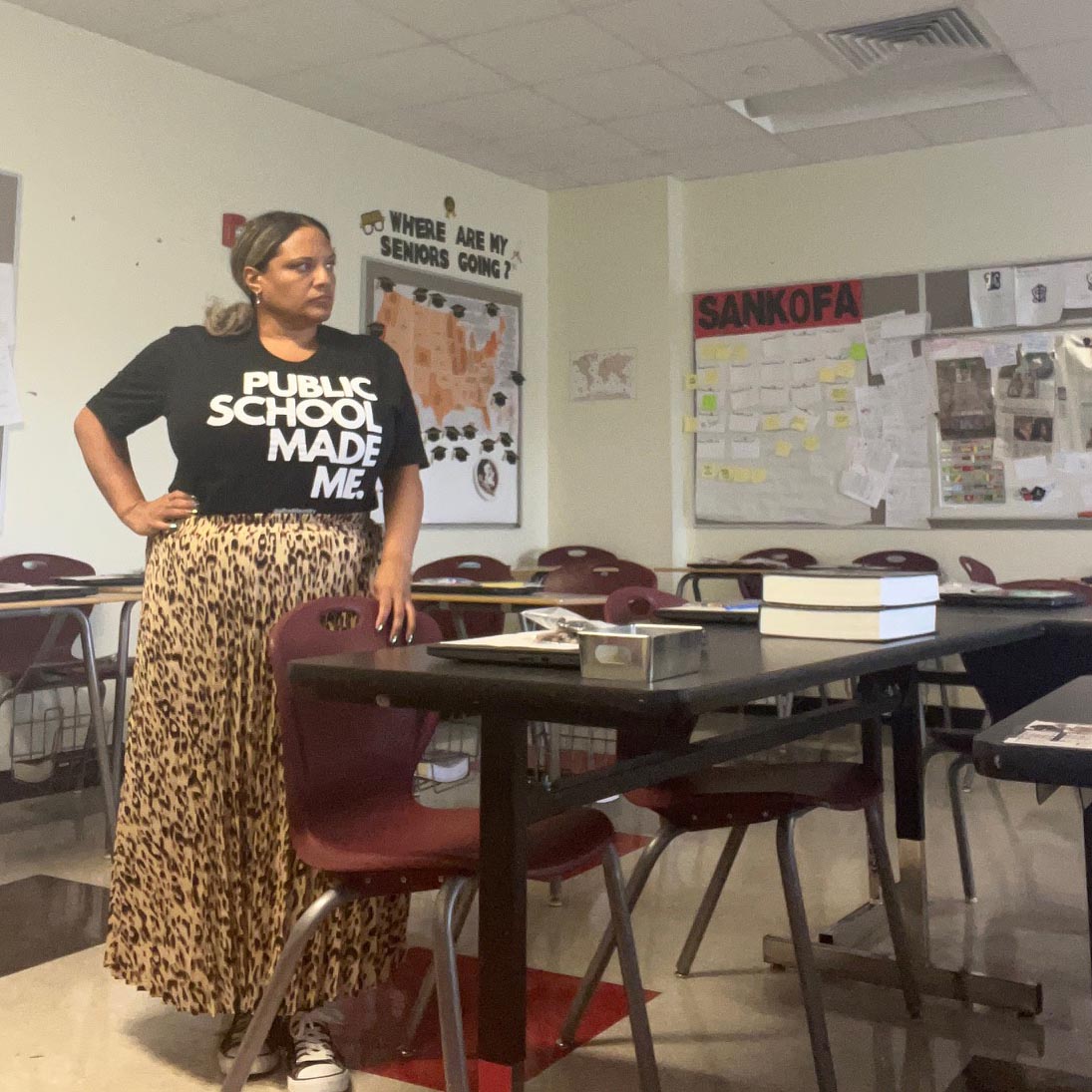A better future requires honest, open teaching of African American history
In the halls of education, I find myself not just a high school history teacher but a storyteller – a weaver of narratives that often go unheard. However, I now find myself as an American who demands that the truth continue to be taught in our classrooms.
This past summer, the Florida State Board of Education approved new standards that include teachers providing instruction about “how slaves developed skills which, in some instances, could be applied for their personal benefit.”
The timing of these reforms in my state was uncanny. I was in Montgomery, Alabama, for a weeklong professional development event by the Southern Poverty Law Center’s Learning for Justice project on Teaching Hard History. Against the backdrop of these reforms, I was in a city steeped in the legacy of slavery and that bore witness to pivotal civil rights events.
My time in Montgomery served as a poignant reminder of the power and responsibility that comes with teaching history. As an educator passionate about African American history, I stand at the intersection of the past and the present. My ancestors watch over and guide me. They give me the courage to use my voice to speak out about those attempting to erase the importance of what African American people have endured. They give me the courage to speak out about the ways in which our past permeates our lives today.
I decided it was time to make a lot of noise. And refusing to stay silent about injustices in education made me a living testament to the very lessons I have been teaching. I spoke with anyone who would listen to me. When the Community Justice Project – a community of lawyers in South Florida who advocate for racial justice – heard my story, they invited me to share my truths in person, in front of the world at the United Nations Human Rights Committee in Geneva, which monitors implementation of the International Covenant on Civil and Political Rights.
In my speech, I let the international committee know that my efforts are unwavering and that the current policies in Florida are “stifling, repressive and regressive.” I also let them know that I firmly believe that teaching African American history is a way that we can promote a more just and fair society – one that the founders of this country prophesied.
While I have taken a sabbatical after 12 years in the classroom due to the situation in Florida, I use Zoom to work with teachers from across the country navigating similar situations in their classrooms. I feel a responsibility to my ancestors, my students, my fellow teachers and my country to continue to speak up. By using my voice, I hope to contribute to a future where education is truly inclusive, reflective and empowering for every student who walks the halls of U.S. schools.
African American history is not a separate entity. It is not a footnote. It is an integral part of the American story – a vibrant part of the story which must continue to be told truthfully and completely in all classrooms across this country.
As a scholar of the past, I have now become a part of the future, one in which I embody the resilience and conviction of those who I have taught about. They have fueled my strength to speak up and demand that our students learn the truth.
We must stand up for the truth.
Renee O’Connor has taught African American history in Miami. She was nominated for Miami-Dade Public Schools Teacher of the Year in 2022.
Illustration at top: Renee O’Connor is helping teachers to navigate efforts across the country to suppress the teaching of honest history. (SPLC)

